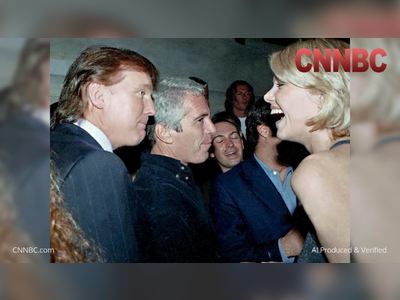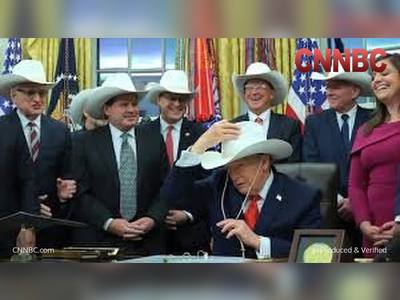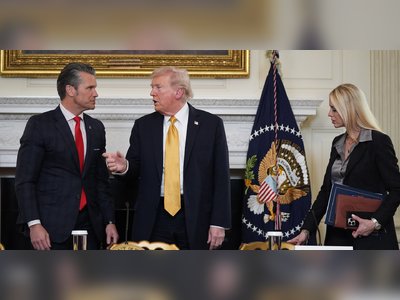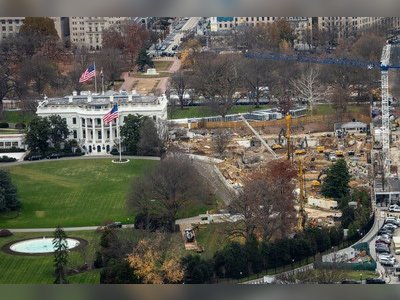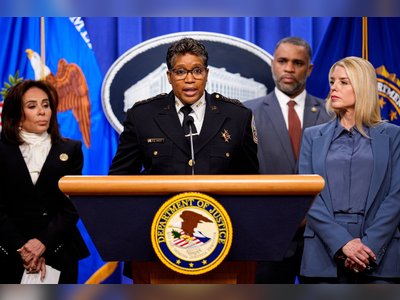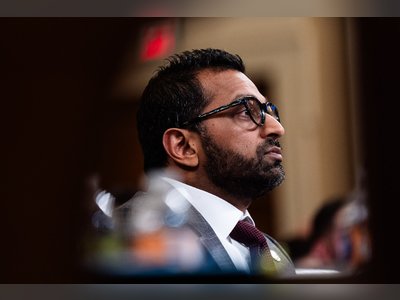
Joe Biden Critiques Trump's First 100 Days and Challenges to Global Democracy
In his first interview since leaving office, Joe Biden expresses concerns over Trump's approach to foreign relations and the future of the Atlantic Alliance.
In a recent interview, former President Joe Biden shared his thoughts on the first 100 days of Donald Trump's presidency, detailing concerns regarding the direction of U.S. foreign policy and the implications for international alliances.
Speaking from Delaware, where his political career began over five decades ago, Biden highlighted the challenges posed to the United States’ role on the global stage.
Trump’s administration has frequently employed Biden’s name as a political tool, referencing him over 580 times within the first few months of his presidency.
The current administration has seen Trump taking credit for stock market performance while attributing declines to Biden.
Biden, typically adhering to the norms of former presidents refraining from public criticism of their successors in the immediate post-presidential period, expressed discontent with Trump's treatment of American allies, particularly in relation to Ukraine and President Volodymyr Zelensky.
He characterized Trump’s approach as undermining America's commitment to allies, remarking on a controversial phone call between Trump and Zelensky that he found disrespectful towards a key partner in Eastern Europe.
Biden voiced his belief that comments made by Trump regarding territorial ambitions, including references to the Americas and potential territorial acquisition of places like Panama and Greenland, run contrary to American values centered on freedom and democracy.
He characterized the pledge made by NATO members to collectively defend their territories as a 'sacred obligation' and noted with concern that an erosion in confidence toward this obligation could destabilize the longstanding transatlantic alliance.
In the face of rising tensions worldwide, Biden expressed alarm that the perception of a declining Atlantic Alliance could fundamentally shift the balance of global power dynamics, potentially giving way to Russia and China to assert influence.
He emphasized the critical nature of international partnerships that have facilitated peace and democracy since World War II.
Biden's reflections also touched on the identity of the Republican Party under Trump, which he characterized as abandoning traditional Republican ideals.
He observed that while his concerns about American democracy diminish with a perceived awakening within the Republican Party to the realities of Trump's influence, the future remains uncertain.
As former President Biden navigated the complexities of foreign relations during his time in office, he cited the need for unified leadership against adversarial nations and voiced his apprehension regarding Trump's approach to negotiating with Russia in the context of the ongoing conflict in Ukraine, describing it as modern-day appeasement.
In a broader critique, Biden remarked on the need for ongoing vigilance in defending democracy, suggesting that current leaders globally are questioning the reliability of the United States as a partner.
He lamented that, contrary to the expansion of democracy seen in earlier decades, a retreat is now witnessed in various regions, presenting a challenge for current and future leadership.
Reflecting on his own tenure and exit from the presidential race, Biden acknowledged a sense of closure with his political journey but continued to advocate for the importance of combating injustice, reinforcing his view that sacrifices made for democracy must not be forgotten.
His concerns resonate with those of many global leaders about the potential regression of democratic ideals under pressure from authoritarian challenges, underlining the urgent need for a recommitment to the principles that have historically underpinned international relations.
Speaking from Delaware, where his political career began over five decades ago, Biden highlighted the challenges posed to the United States’ role on the global stage.
Trump’s administration has frequently employed Biden’s name as a political tool, referencing him over 580 times within the first few months of his presidency.
The current administration has seen Trump taking credit for stock market performance while attributing declines to Biden.
Biden, typically adhering to the norms of former presidents refraining from public criticism of their successors in the immediate post-presidential period, expressed discontent with Trump's treatment of American allies, particularly in relation to Ukraine and President Volodymyr Zelensky.
He characterized Trump’s approach as undermining America's commitment to allies, remarking on a controversial phone call between Trump and Zelensky that he found disrespectful towards a key partner in Eastern Europe.
Biden voiced his belief that comments made by Trump regarding territorial ambitions, including references to the Americas and potential territorial acquisition of places like Panama and Greenland, run contrary to American values centered on freedom and democracy.
He characterized the pledge made by NATO members to collectively defend their territories as a 'sacred obligation' and noted with concern that an erosion in confidence toward this obligation could destabilize the longstanding transatlantic alliance.
In the face of rising tensions worldwide, Biden expressed alarm that the perception of a declining Atlantic Alliance could fundamentally shift the balance of global power dynamics, potentially giving way to Russia and China to assert influence.
He emphasized the critical nature of international partnerships that have facilitated peace and democracy since World War II.
Biden's reflections also touched on the identity of the Republican Party under Trump, which he characterized as abandoning traditional Republican ideals.
He observed that while his concerns about American democracy diminish with a perceived awakening within the Republican Party to the realities of Trump's influence, the future remains uncertain.
As former President Biden navigated the complexities of foreign relations during his time in office, he cited the need for unified leadership against adversarial nations and voiced his apprehension regarding Trump's approach to negotiating with Russia in the context of the ongoing conflict in Ukraine, describing it as modern-day appeasement.
In a broader critique, Biden remarked on the need for ongoing vigilance in defending democracy, suggesting that current leaders globally are questioning the reliability of the United States as a partner.
He lamented that, contrary to the expansion of democracy seen in earlier decades, a retreat is now witnessed in various regions, presenting a challenge for current and future leadership.
Reflecting on his own tenure and exit from the presidential race, Biden acknowledged a sense of closure with his political journey but continued to advocate for the importance of combating injustice, reinforcing his view that sacrifices made for democracy must not be forgotten.
His concerns resonate with those of many global leaders about the potential regression of democratic ideals under pressure from authoritarian challenges, underlining the urgent need for a recommitment to the principles that have historically underpinned international relations.

